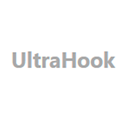Top LocalXpose Alternatives for Exposing Your Localhost to the Internet
LocalXpose is a powerful reverse proxy tool designed to expose your localhost to the internet, offering features like GUI & CLI, unlimited connections, various tunnel types (HTTP/s, TLS, TCP, UDP), password-protected tunnels, and custom domain support. However, developers and teams often seek out a LocalXpose alternative that might better fit specific project requirements, budget constraints, or feature preferences. This article delves into the best alternatives available to help you find the perfect solution for your development and testing needs.
Top LocalXpose Alternatives
Whether you're looking for open-source solutions, specific platform support, or advanced networking features, this curated list of LocalXpose alternatives offers a diverse range of options to suit various needs.

ngrok
ngrok is a highly popular LocalXpose alternative that securely exposes local servers to the public internet over secure tunnels, bypassing NATs and firewalls. It’s available on Freemium and paid tiers for Mac, Windows, Linux, BSD, and FreeBSD, making it a versatile networking tool for developers.

ZEIT Now
ZEIT Now, now Vercel, is a powerful serverless platform that allows you to deploy with just one command. While primarily a deployment platform, its serverless capabilities can act as an indirect LocalXpose alternative for showcasing web projects. It offers Freemium and paid plans, is open-source, and supports Mac, Windows, Linux, and Web environments.

Pagekite
Pagekite is an excellent open-source LocalXpose alternative that brings your localhost servers online, making them globally visible. It's a fantastic networking and web server tool compatible with Mac, Windows, Linux, Android, and BSD, available on Freemium and paid tiers.

Portmap.io
Portmap.io provides a port forwarding service for exposing your local PC to the internet from behind a firewall, using OpenVPN or SSH encrypted tunnels. It's a strong LocalXpose alternative with no installation required, supporting Mac, Windows, and Linux on Freemium and paid plans, featuring REST API and robust port forwarding.

sish
sish is an open-source, self-hosted LocalXpose alternative that provides HTTP(S)/WS(S)/TCP tunnels to localhost using only SSH. It’s free and offers raw TCP and SSH tunneling capabilities, making it a flexible choice for developers who prefer self-hosting.

Teleconsole
Teleconsole is a free, open-source service primarily for sharing your terminal session via SSH or browser over HTTPS. While not a direct reverse proxy, its SSH capabilities can serve as a limited LocalXpose alternative for secure access, available on Mac and Linux.

Packetriot
Packetriot simplifies exposing local and private network services and data to the internet. As a strong LocalXpose alternative, it supports Let's Encrypt, end-to-end encryption, HTTP monitoring, and more. It runs on Mac, Windows, Linux, and can be self-hosted, offered on Freemium and paid plans.

beame-insta-ssl
beame-insta-ssl is a free and open-source LocalXpose alternative focused on making encryption easy for web developers. It provides secure tunnels with AES encryption and networking capabilities, available on Mac, Windows, Linux, and Web platforms.

Dataplicity
Dataplicity offers remote terminal access, similar to SSH, for devices like Raspberry Pi, without complex firewall setups. It functions as a LocalXpose alternative for remote access and port forwarding, available on Freemium and paid plans for Windows, Android, and iOS devices.

Holepunch
Holepunch is a completely open-source LocalXpose alternative for local tunneling, exposing locally hosted services to the internet. It offers end-to-end encryption, networking, and port forwarding, supporting Mac, Windows, Linux, Android, and SaaS.

Yaler
Yaler provides secure remote Web and SSH access to embedded systems behind firewalls or NATs. It’s an open-source LocalXpose alternative for commercial use, with embeddable networking and SSH tunnel features, available on Mac, Windows, and Linux.

Webhook Relay
Webhook Relay forwards webhooks to localhost and exposes servers behind firewalls without public IPs. It's a robust LocalXpose alternative, offering custom domains, Dockerized deployment, Jenkins integration, and strong security, available on Mac, Windows, Linux, and Raspberry Pi, with Freemium and paid plans.

Raspberry Anywhere
Raspberry Anywhere offers TeamViewer-like access to your Raspberry Pi board via SSH or Web client. While specialized for Raspberry Pi, it provides a remote desktop and SSH alternative to LocalXpose for Linux systems, available commercially.

Openport
Openport is an easy and secure reverse SSH solution that allows port forwarding, machine tracking, and file sharing. It's a networking-focused LocalXpose alternative with SSH tunneling and port forwarding, available on Mac, Windows, and Linux under a Freemium model.

SSHHub.de
SSHHub.de is a web service that allows access to SSH servers from anywhere, even behind routers or firewalls, with no software installation. It serves as a web-based LocalXpose alternative, providing SSH and VPN tunneling on a Freemium SaaS model.

inlets
inlets is a cloud-native tunnel that securely connects HTTP and TCP services between networks via an encrypted websocket, penetrating firewalls and NAT. This free, open-source, self-hosted LocalXpose alternative is ideal for Kubernetes environments and offers robust tunneling and VPN capabilities.

StaqLab Tunnel
StaqLab Tunnel exposes local ports to the public internet, providing a public URL for your local server. It’s a free LocalXpose alternative with features like WebHook integration, debugger, intercepting HTTP calls, unlimited custom domains, and SSH tunneling, available on Mac, Windows, and Linux as a SaaS.

UltraHook
UltraHook simplifies connecting public webhook endpoints with development environments. While it doesn't boast a long list of features, its dedicated focus on webhooks makes it a straightforward, free web-based LocalXpose alternative for specific use cases.
With a multitude of LocalXpose alternatives available, each offering unique strengths, you can confidently choose the best tool to expose your localhost to the internet. Consider your specific needs, whether it's robust security, open-source flexibility, ease of use, or platform compatibility, to find the perfect fit for your development workflow.